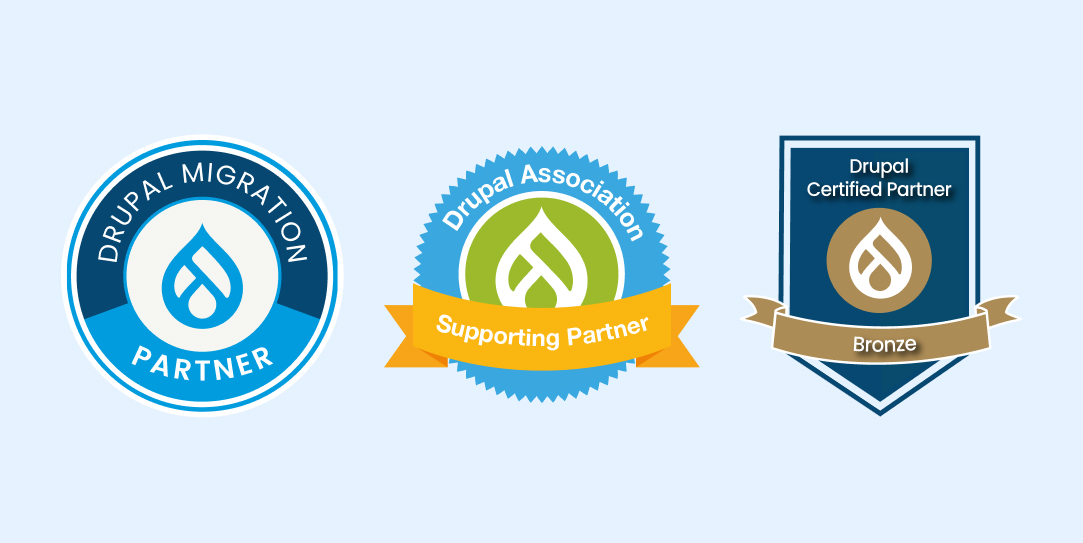Subscribe To Our NewsLetter
Share This Post:
In 2024, safeguarding your website against a multitude of online threats has become more crucial than ever. With cyberattacks posing significant risks that can potentially cripple your business, ensuring the security and safety of your digital presence is paramount.
Enter Drupal 10, a robust CMS equipped with advanced features designed to protect your website from these looming dangers. This comprehensive guide will dive into the talk about the prominent thread out there for your website and the key steps you need to take to protect your website.
Knowing Potential Threats that Can Harm Your Drupal 10 Website:
Before forging your Drupal 10 security shields, understanding the enemies you face is important. Here's a deeper dive into the most common threats, their tactics, and their potential impact:
1. SQL Injection
Imagine a mischievous gremlin slipping through your website's defenses, whispering harmful commands directly into your database. That's what SQL injection does. Attackers exploit vulnerabilities in user input (like search bars or comments) to inject malicious SQL code. This code can then:
- Steal sensitive data
- Modify or delete data
- Take control of your site
2. Cross-Site Scripting (XSS)
Ever seen a seemingly harmless comment suddenly redirect you to a shady website? That's the work of XSS. Attackers inject malicious scripts into user-generated content like forum posts, comments, or product reviews. When unsuspecting users interact with this content, the scripts execute, potentially:
- Hijacking user accounts
- Spreading malware
- Defacing your website
3. Unauthorized Access
Think of this as a determined thief trying to pick your digital locks. Attackers use various methods to gain unauthorized access to your website, including:
- Brute-force attacks
- Exploiting vulnerabilities
- Social engineering
Now, let's understand the best practices to protect your website.
Best Practice to Safeguard Your Drupal 10 Website Against Cyberthreats
Follow these market best practices to ensure that your website is shielded against all kinds of cyber threats

Patchwork Like a Pro Against Attacks
When it comes to patching vulnerabilities, going beyond just Drupal itself is essential for maintaining a secure website. Extend your vigilance to include your web server, database, and any third-party libraries utilized by your site. Even a small vulnerability in any of these areas can be exploited by cyber threats.
Therefore, proactive defense is crucial. Don't wait for a breach to occur before taking action. Stay ahead of emerging vulnerabilities by subscribing to security mailing lists or utilizing automated update tools.
A stronger Password is Always a Good Idea
Creating strong passwords is paramount in safeguarding your website against unauthorized access. Encourage users to go beyond basic complexity rules by utilizing passwords with at least 12 characters, including a mix of uppercase and lowercase letters, numbers, symbols, and special characters. Discourage the use of dictionary words, personal information, or predictable patterns.
Additionally, empowers users with password managers to handle multiple complex passwords effortlessly, reducing the risk of weak credentials and password reuse. Regularly changing passwords (every 3-6 months) is also crucial to minimize the damage in case of a breach.
Grant Access with Granularity
Adopting the principle of least privilege ensures that users are granted only the minimum level of access required for their specific roles. Avoid handing out admin privileges indiscriminately.
Schedule regular audits of user roles and permissions, particularly after personnel changes or project completions, to revoke access when it's no longer necessary. Implement monitoring tools to keep track of user activity and log access attempts, promptly investigating any suspicious behavior or unauthorized access attempts.
Automated Security to Stay Updated With Newer Practices
Automated security measures play a critical role in safeguarding your website against a myriad of online threats. Deploying a Web Application Firewall (WAF) acts as a frontline defense, intercepting and blocking malicious traffic before it can reach your website. With the ability to detect and fend off common attacks like SQL injection, Cross-Site Scripting (XSS), and more.
Additionally, regular scanning of your website using automated security scanners is essential for early detection and mitigation of vulnerabilities. These scanners meticulously probe your site, identifying known weaknesses and suspicious configurations, allowing you to address them swiftly.
Choose Your Module Allies Wisely
Before installing any modules, it's essential to research the developer, and community activity, and download statistics to ensure their reliability and security. Opt for modules with active development and a strong reputation within the Drupal community.
Utilize security scanners or vulnerability databases to identify and address any known security issues before and after installing modules. Consider creating a sandbox environment to test new modules thoroughly, especially those with limited usage history or community support.
Let’s Wrap It Up!
All in all, safeguarding your Drupal 10 website in 2024 involves proactive measures, user education, and automated security practices. Understanding threats like SQL injection and Cross-Site Scripting is crucial. Implementing patching, strong passwords, permission granularity, and careful module selection enhances security. Utilizing automated tools such as Web Application Firewalls and regular security scanners ensures ongoing protection.
Take proactive steps to safeguard your website today. Connect with LN Webworks' team of Drupal experts to fortify your defenses against cyber threats. Don't wait for an attack to occur – let us assist you in protecting your online presence.
Share This Post:
Author Information

LN Webworks
Your Drupal Solution PartnerLN Webworks have championed open-source technologies for nearly a decade, bringing advanced engineering capabilities and agile practices to some of the biggest names across media, entertainment, education, travel, hospitality, telecommunications and other industries.
Talk With Certified Drupal Experts!
Related Articles
February 19, 2024
How to Identify Opportunities for Contribution on Drupal.org?
January 29, 2024



